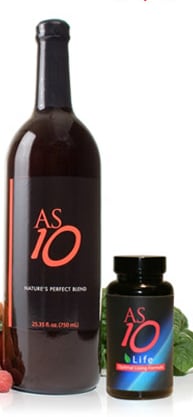A rash of stories in outlets as august as the New York Daily News in the US and The Mail in the UK this week copied the same claims: that non-existent University of Utah research into the NASA beverage showed ‘miraculous’ results in reversing UV spots and wrinkles.
Drinking just two shots of the drink daily cut UV spots by 30% and wrinkles by 17%, The Mail gushed, while the paper also quoted ‘University of Utah nutritional scientist’, Dr Aaron Barson, comparing free radicals to ‘Pacmen’ taking bites out of molecules in cells.
University of Utah denies involvement
But beyond the glut of news articles, BeverageDaily.com was unable to locate any reference to any University of Utah research study published online.
A University of Utah spokeswoman told BeverageDaily.com on Friday: “Dr. Aaron V. Barson, Jr. was a volunteer/adjunct clinical assistant professor at the University of Utah from 1988 through 2002.”
She added: “He currently has no affiliation with the University of Utah and the research attributed to him in the story that ran originally in the New York Daily News titled ‘Space drink’ concocted by NASA helps reduce wrinkles is in no way connected to the University of Utah.”
AS10 was developed as a nutritional supplement for astronauts to protect them from high radiation levels outside the Earth’s atmosphere – The Mail claimed – modestly priced at ₤30 (€37) per 750ml, pictured left.

The paper published “startling images [that] may prove that a fruit drink developed NASA to protect astronauts from radiation can rejuvenate the skin”, and cited a “groundbreaking study” showing that the AS10 beverage “dramatically reduces wrinkles, blemishes and sun damage after four months”.
According to its UK brand website, replete with astronaut imagery, AS10 fuses “next generation super fruit” cupuacu, acai, acerola, prickly pear and yumberry mixed with “five top ingredients from our joint research with NASA Johnson Space Centre”.
'Not a NASA food product'
But William Jeffs from NASA’s Johnson Space Centre in Houston (which runs the agency’s Advanced Food Technology Project), toldBeverageDaily.com on Friday: “In short, the ‘AS10’ drink substance mentioned in this news story is not a NASA food product.”
He added: “NASA has not used any material or food substance described in these various news stories, nor are we conducting any research related to the claims made in these news stories.”
However, David Wilson, AmeriSciences UK Master Distributor, told BeverageDaily.com that The Mail story “has been picked up by other agencies across the world who have not reproduced it naturally”, with neither the University of Utah or NASA involved in Aaron Barson’s “small study”.
Media misreporting blamed
Wilson said he was “extremely frustrated” by media misreporting, and that PR agencies sent data (not seen by BeverageDaily.com) omitted to say that it a ‘NASA Quintet’ of five ‘super fruits’ added to AS10 that accounted for its effects, whereas astronauts took the quintet in gel capsule form.
“It really is the responsibility of the media to ensure their content is correct. NASA didn’t develop the AS10 drink itself,” Wilson said. “But as you can see they were involved in joint research to develop the active ingredients in the drink.”
By way of evidence, Wilson sent us a link to a 2011 paper published in the journal Radiation Research, reporting increased survival rates for female mice exposed to ionizing radiation and fed a fruit and vegetable AmeriSciences/NASA antioxidant premix, compared to a control diet.
The lead NASA research contact for that study was one Dr Jeffrey Jones, Wilson said, and the firm’s NASA collaboration stemmed from a 2005 Space Act Agreement to co-develop nutritional supplements for astronauts.
Houston-based AmeriSciences’ website is currently offline, and Wilson said the company was currently undergoing a restructuring process “that will hopefully be finished soon”.
